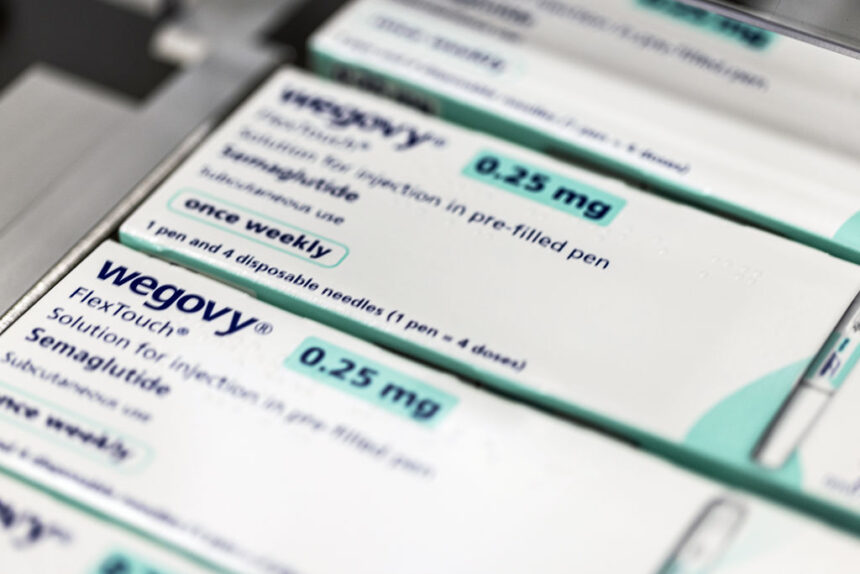Novo Nordisk announced Tuesday morning that its once-weekly semaglutide 2.4 mg treatment cut the risk of major adverse cardiovascular events (MACE) by 20% in a clinical trial.
The company’s semaglutide injection met the primary endpoint of the Select trial, which was to reduce instances of cardiovascular death, non-fatal myocardial infarction or non-fatal stroke. Novo said all three components contributed to the “superior MACE reduction” demonstrated by semaglutide 2.4 mg compared to the placebo.
The obesity treatment was safe and well-tolerated among patients compared to previous semaglutide 2.4 mg trials and the company said it will release detailed results at a scientific conference later this year.
Additionally, the Danish drugmaker said it plans to file for regulatory approval of label indication expansion for semaglutide 2.4 mg, branded as Wegovy, in the U.S. and E.U. in the coming months.
The trial results point to the possibility of semaglutide not only cutting weight for patients but also slashing the risk of heart disease and MACEs, too.
“People living with obesity have an increased risk of cardiovascular disease but to date, there are no approved weight management medications proven to deliver effective weight management while also reducing the risk of heart attack, stroke or cardiovascular death. Therefore, we are very excited about the results from Select showing that semaglutide 2.4 mg reduces the risk of cardiovascular events,” Martin Holst Lange, EVP of development at Novo Nordisk, said in a statement. “Select is a landmark trial and has demonstrated that semaglutide 2.4 mg has the potential to change how obesity is regarded and treated.”
This is a major development in the ongoing research and application of weight loss drugs like Wegovy or its fellow Novo drug Ozempic.
The drugs are meant for use by patients with obesity or diabetes but have been widely used for the off-label purpose of losing weight. The national weight loss craze has ranged from use by celebrities and influencers to regular consumers but has also resulted in shortages facing patients who need them for their respective medical conditions.
Novo has dealt with shortages since the end of 2022 and took steps earlier this year to restore supplies of the drugs to pharmacies and also revamp its marketing approach given the widespread off-label use at play.
The company has even taken legal action against multiple medical spas, weight loss clinics and compounding pharmacies for allegedly selling unauthorized versions of the drugs.
In the months that have followed, there has been additional research into semaglutide’s effects on not only body weight but also physical and mental health.
Near the end of June, Novo announced that an oral version of semaglutide helped patients taking the highest dose lose 15% of their body weight.
The same month, the European Medicines Agency (EMA) raised a thyroid cancer safety signal on Novo’s semaglutide products.
In July, the EMA extended its probe into Ozempic and weight-loss treatment Saxenda following two reports of suicidal ideation from drugs in the same class. Weeks later, Britain’s Medicines and Healthcare products Regulatory Agency said it would review a class of diabetes drugs sold by Novo following patients reports of suicidal thoughts or self-harm.
While Novo has benefited from the success of its weight loss offerings, the company is also not alone in the GLP-1 medicines space.
Eli Lilly has remained a firm rival with the success of its diabetes drug Mounjaro and the promise of its investigational treatment retatrutide, which cut weight by 24% according to Phase 2 trial data released in June.
For a March 2024 artcle on GLP-1s being set to take the drug sales throne from PD-1 inhibitors in 2024, click here.







